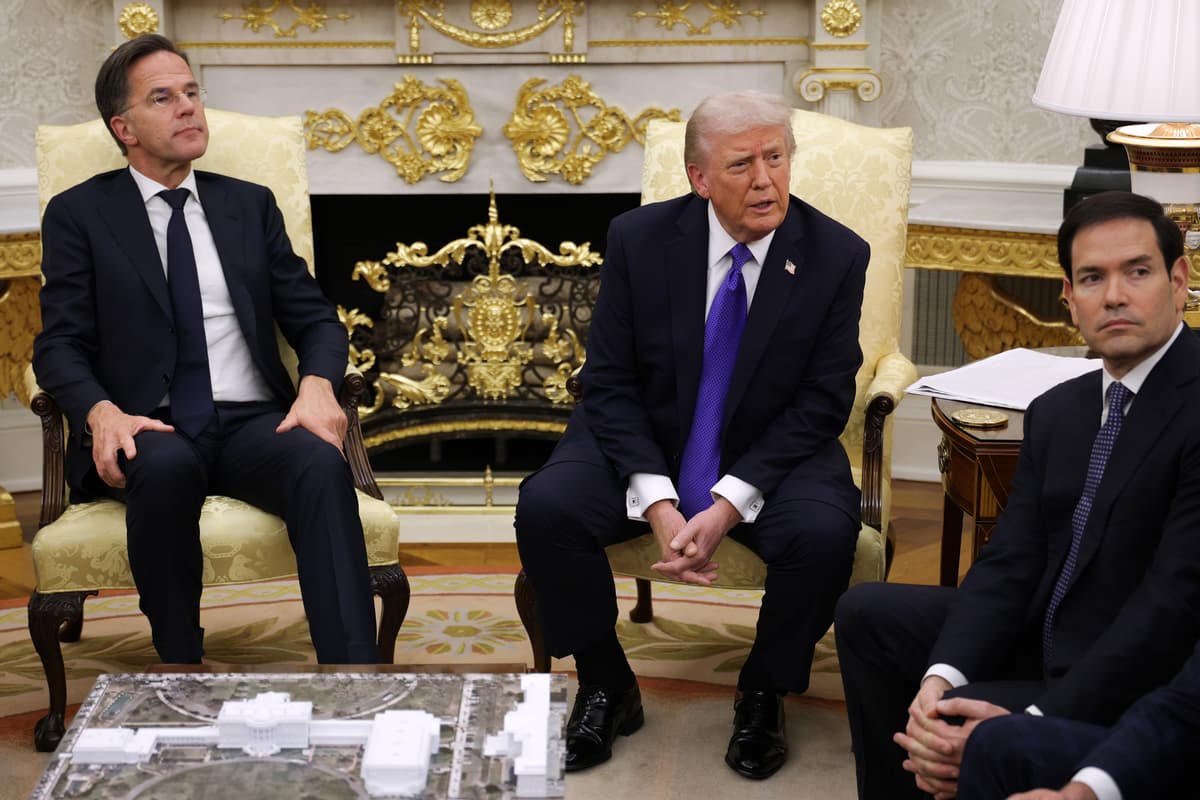The United States has imposed sanctions on Russia’s two largest oil-exporting companies, Lukoil and Rosneft, according to President Donald Trump. In response, Russian President Vladimir Putin expressed confidence, stating that while there would be “certain consequences,” they would not significantly impact Russia’s economic stability. Trump remarked to reporters at the White House that the effectiveness of these sanctions would become evident in six months.
The sanctions come as India and China, which account for three-quarters of Russia’s oil exports, are reportedly reducing their purchases. Analysts anticipate that India will cut its imports to zero by the end of a one-month transition period, while China may reduce its imports by half. This marks the first major action taken by the Trump Administration against Russia, following increasing tensions over the ongoing conflict in Ukraine.
Trump had intended to meet Putin in Budapest next month to discuss a potential peace deal for Ukraine. However, following a lack of interest from Russia in a ceasefire, the meeting has been cancelled, with Trump stating he “cancelled” the summit while Putin described it as “postponed.” When asked why he chose to impose sanctions now, Trump replied, “I just thought the timing was good.”
The sanctions are significant, particularly as the Biden Administration had previously sanctioned Russia’s third- and fourth-largest oil exporters but avoided targeting Lukoil and Rosneft due to concerns about inflation during an election year. With inflation currently low and midterm elections a year away, the circumstances have shifted, prompting the new sanctions.
As a result of the sanctions, the price of Brent oil rose five percent yesterday, although it remains at a low base of $62 per barrel. Russia’s oil export revenues have already declined by 21 percent in 2023 compared to the same period last year, primarily due to taxes on oil and gas production, which contribute approximately 25 percent to the Russian government’s revenue. The Kremlin has begun to tap into its sovereign wealth fund, which has seen a significant decrease of about 60 percent in liquid assets since the onset of the conflict in Ukraine. Currently, Russia has around $50 billion available in this fund, a stark contrast to Norway’s sovereign wealth fund, which is valued at $2 trillion.
Inflation in Russia stands at 8 percent, with a prime lending rate of 17 percent and a labor shortage exacerbated by military call-ups and emigration. According to the International Monetary Fund, the Russian economy is expected to grow by only 0.6 percent this year, a notable decline from the 4 percent growth experienced last year due to substantial defense spending.
The impact of these sanctions has also been felt internationally. The UK’s recent sanctions on Lukoil and Rosneft align with similar actions taken by the European Union, which has approved measures to phase out purchases of Russian liquefied natural gas by the end of next year. Since Putin’s invasion of Ukraine, European countries have reduced their energy imports from Russia by 90 percent.
In Russia, the response to the sanctions has been vocal. Former President Dmitry Medvedev, now deputy chairman of the Security Council, described the sanctions as an “act of war” against Russia and accused the United States of fully aligning with “loony Europe.” Putin further warned that should the Trump Administration sell Tomahawk missiles to Ukraine, Moscow’s response would be “very serious, if not overwhelming.”
While the debate around Tomahawk missiles continues, Ukraine is preparing to launch its own cruise missile, the Flamingo. Reports indicate that Ukrainian forces are targeting Russian oil refineries and munitions plants, with President Volodymyr Zelensky stating that these strikes contribute to “bringing Russia back to reality.”
The United States is also implementing a secondary sanctions regime aimed at penalizing companies that continue to buy Russian oil. This could potentially exclude offending companies from American capital markets and ban their vessels from dealings with Western insurance firms. As Indian refiners adjust their orders in light of the sanctions, they are shifting towards Middle Eastern suppliers, while China’s major oil companies are suspending purchases of Russian oil, although some agreements may remain intact.
As the situation evolves, both the U.S. and its allies are navigating a complex landscape of energy dependence and geopolitical tensions, with the actions taken now likely to shape future relations and economic conditions in the region.







